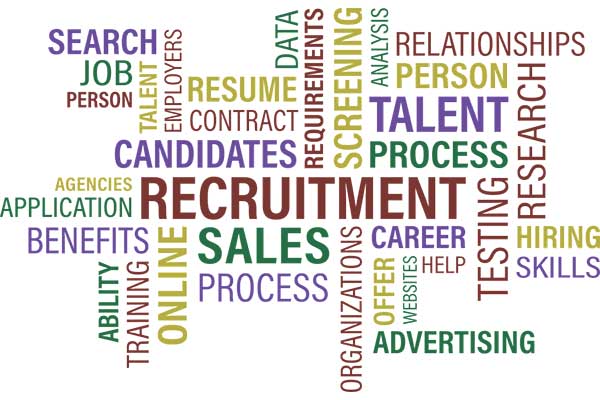Keeping in mind that not EVERY situation is the same, this rule is pretty well tried and true.
One of the biggest mistakes we find that our clients have made in recruitment—before bringing us onboard, of course—is hiring too quickly. Hiring after one meeting is like getting a marriage proposal after the first date: too eager and way too likely to be a bad decision! We recommend a few more interactions before asking someone to leave a five year position to join your team, and here’s why:
Your dream candidate often seems perfect on paper: they may have great work experience, the exact match of skills, and a very pleasant personality. But how do they cope with stress, or how well do they type up a letter to a client, or how politely do they answer the phone, even when the caller is not polite themselves? These are important things that you can’t even have an inkling of in one short meeting.
A candidate may have worked well with someone else for five years, or perhaps they came to a level of acceptance of the challenges of the working relationship, but what one employer is willing to accept is very different from what another employer will accept. Attention to detail, accuracy, personality, writing style… these are not easy to change once a candidate starts working for you.
So, we highly recommend that you hire slow and fire fast. What does that mean, exactly? Let’s start with ‘hiring slowly’, We’re not suggesting that you take things at snail’s pace, with weeks going by between each interview so that the candidate eventually gives up. Nor are we implying that anything less than twelve interviews with the candidate you are interested in will leave you hanging high and dry. What we are saying is that you should take time to go through a specific process so that you can be sure that you’ve had sufficient interaction with them to hire with confidence.
There are five things to do when you are hiring, whether you are working with the best recruitment agency in the industry (ahem…) or hiring on your own:
- Have several points of communication with the candidate.
- Meet them at least twice, in person.
- Have a phone conversation. You will hear their phone presence and attitude. Do you hear a smile? No? That’s something to consider given the roles you are trying to fill are probably heavy with telephone client interactions.
- Email them and ask them to write you back. You will notice typos, grammatical issues, if there are any, as well as tone and style.
- Did they use emojis in their Facebook Messenger communication with you, or in their email returned to you? You may be fine with that. Then again, you might not. It’s best to have some idea of how their client interactions will be BEFORE you hire them.
- Test out the candidate. Take time out of your schedule and request some of their time to give them an onsite assignment, such as designing a brochure (if they are graphic designers) or broker loading a listing (if they are assistants). Call it a trial run: give them 2-3 hours’ worth of work to see if they understand your instructions and for them to see if they like your leadership style. Compensate them for their time, whether you hire them or not. There’s nothing worse for a candidate than to do ‘free work’ as a trial. Their time is valuable too.
- Consider doing some personality testing. DiSC profiling is not a bad idea, however I don’t suggest that you take any results from this as the Holy Grail because testing can be easily manipulated. Personality profiling should help complement what you already assessed in your own behavioural interviewing, not replace it.
- Ensure that you at least conduct ONE thorough interview (with behavioural questions) at one point during your interactions with the candidate. Most clients prefer the chat approach but that doesn’t reveal how they respond to situation or how they tell their story. A more thorough interview with planned questions will give you a chance to sit back and really see how they manage, without having to hold up your end of a chat the whole time. If you need interview questions, we have some and we don’t mind sharing.
- Make those reference calls. You must invest the time to call previous managers and discuss the candidate’s past work experience. This is the one step that many people avoid doing but it’s the one that will provide the most telling, albeit biased, information. Most candidates with shady backgrounds and horrible employment track records struggle to provide the most recent managerial reference. They will either go back years to find a manager who is willing to give them a good reference or refer you to coworkers because they didn’t have a good relationship with their employer.
As to ‘firing fast’, that too is a bit of a misnomer. It’s not really about booting someone out the door the absolute second you’ve fired them, unless the situation could turn aggressive or the firing is for a matter of security, whether personal or informational. You’ve taken your time to hire someone, you should take a little bit of time in the event of their firing. There is a lot of value if there are still open lines of communication, in finding out where things went wrong. Did the candidate expect something different from the job than what you described? Was there a miscommunication on your part, or theirs? This kind of information can help you to navigate your next hire with more precision, and even protect your business by fine tuning information security processes within your group.
Whatever the reason for the disparity from the candidate you interviewed to the candidate you got, the bottom line is that you will never know more about the situation unless you ask. Rare is the newer hire who will volunteer the information without prompting!
These are simple yet critical steps to reduce the likelihood of a bad hire or a fire that doesn’t yield any useful information. And as the saying goes… an ounce of prevention is worth a pound of cure. Finding qualified candidates is so challenging that some employers are just happy to have found someone… anyone. But there is a cost to a bad hire, in terms of time and money, to say nothing of the fact that the whole event can be quite damaging to you, your hire and potentially, your business.
Don’t get burned by a bad hire: avoid the whole rigmarole and hire AGENTC—our long experience will help narrow down a list of candidates each of whom will meet your requirements on paper and beyond.






